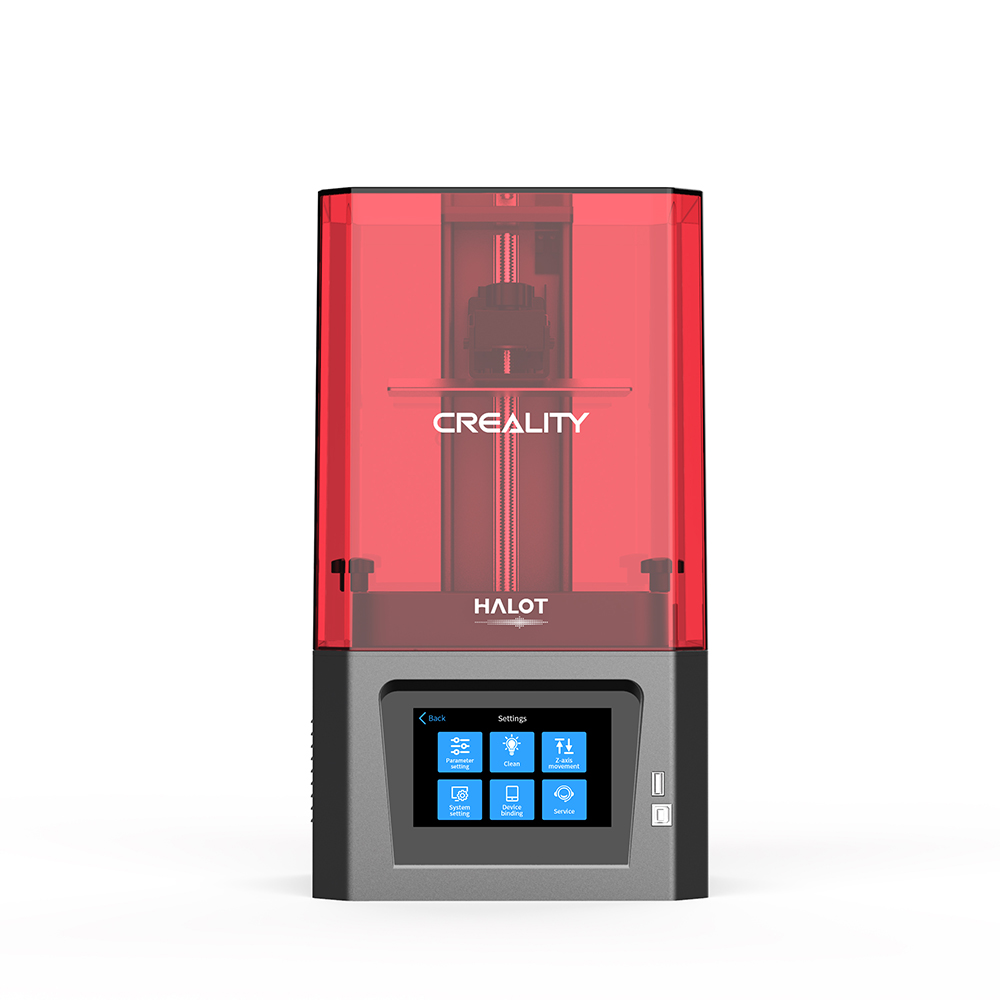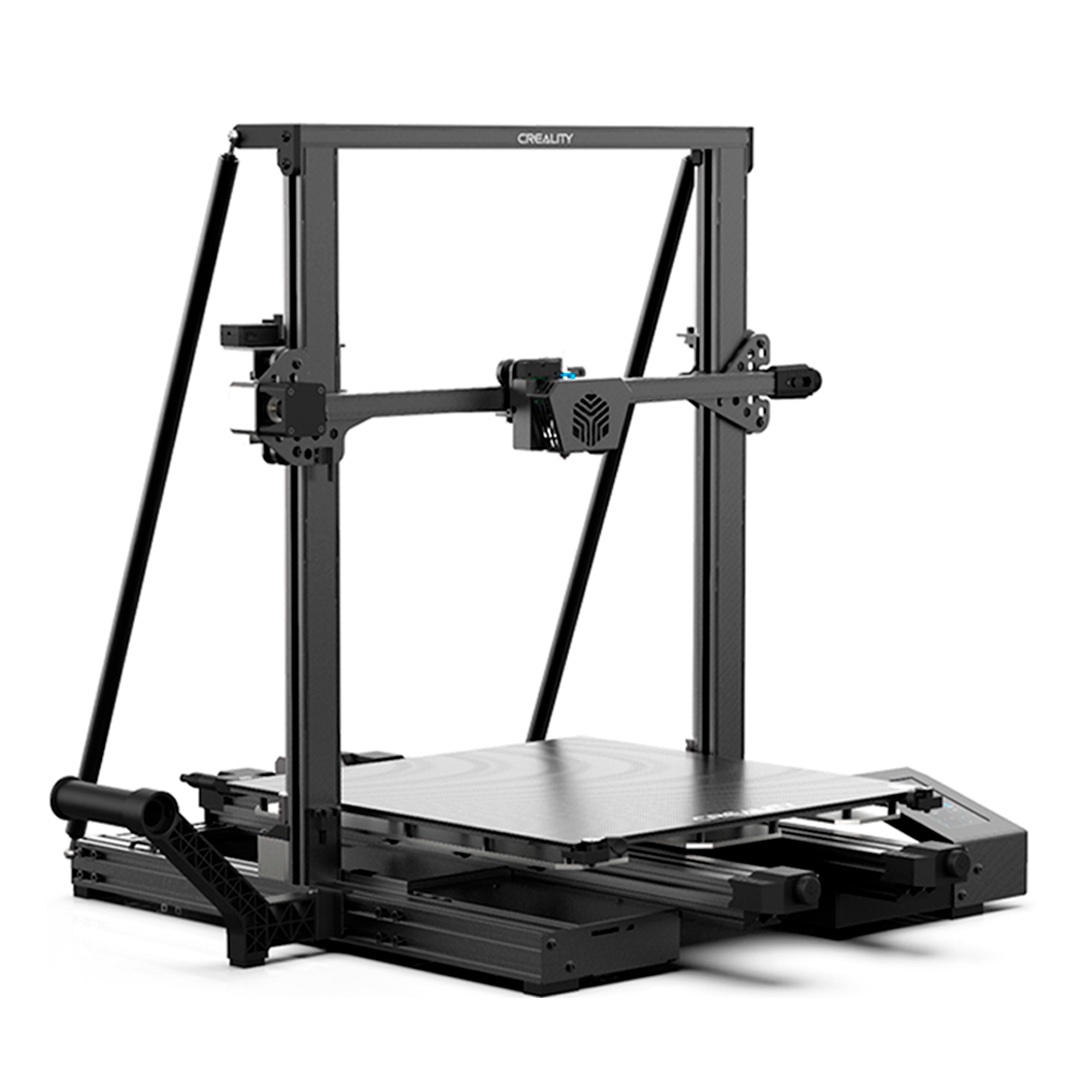Compare Halot One vs CR 6 Max
Comparison between the best 3D printers
Choose the best 3D printer at the best price. The cheapest 3D printers are here.
Buy a 3D printer here with 3D Fila.
 |
 |
|
| Model | Halot One |
CR 6 Max |
| Printing Material | Resin | Filament |
| Buy Resin for Creality 3D Halot One | Buy Filament forCreality 3D CR 6 Max | |
| Estimated price | $250,00 | $700,00 |
| Manufacturer | Creality 3D | Creality 3D |
| Release Year | 2021 | 2021 |
| Print Volume [mm] | 127x80x160 | 400x400x400 |
| Printer Size [mm] | 221x221x404 | 725x640x691 |
| Weight [kg] | 7,1 | 14 |
| Power Loss Recovery | NO | YES |
| Maximum Resolution [mm] | 2k | 0,1 |
| Processor | ||
| Display | Display touchscreen 4,3'' | |
| Power Supply | 110/220V / 500W | |
| Connectivity | SD / USB | |
| Operating systems | Windows, Mac, Linux | Windows, Mac, Linux |
| Date of registration in the system | 2022-10-11 | 2022-11-04 |
| Release date | 2021 | 2021 |
| Extra features | Crealitys Halot-One printer stands out with several innovative features. It has a high-resolution touchscreen, providing an intuitive and responsive interface. Its quiet printing capability is remarkable, ideal for environments where noise is a concern. Assembly and setup are simple, with automatic functions facilitating quick start. Among its features, remote monitoring and adjustments via the Creality Cloud app stand out, simplifying remote print management. Replacing the FEP in the resin vat is easy, and the printer even includes extra FEP sheets. Top cover removal detection increases safety by automatically pausing printing. In addition, its integral light source promises high uniformity, optimizing print quality. | Crealitys CR-6 Max printer offers a large 400 x 400 x 400mm build area, perfect for larger projects without dividers. Its auto-leveling system and force sensor simplify setup. It has a 4.3-inch touchscreen and convenient features like a tool drawer and filament holder. Plus, its modular hotend, redesigned extruder, and silicon carbide-coated build plate improve print quality. |
| Support for multiple colors and materials (AMS and CFS) | NO | NO |
Notes * |
||
| Cost-benefit | 8 / 10 | 6 / 10 |
| Hardware | 0.6 / 10 | 2.4 / 10 |
| Tela | . | . |
| Print volume | 3 / 10 | 4 / 10 |
| Performance | 9 / 10 | 1 / 10 |
Conclusion |
| In evaluating the two 3D printers, the Creality Halot One and the Creality CR-6 Max, several key differences stand out that could influence a purchasing decision based on user needs and budget constraints. The Halot One is significantly more affordable, making it an attractive option for beginners or those looking for a cost-effective solution without sacrificing quality. Its features, such as a high-resolution touchscreen and automatic functions for setup, enhance the user experience and simplify the printing process. The printer’s ability to facilitate quiet operations and include remote monitoring capabilities positions it as a versatile tool for various environments, making it a great choice for small to medium-sized projects. On the other hand, the CR-6 Max excels in print volume, offering a more substantial build area suitable for larger projects. This printer’s robust features, including an auto-leveling system and modular hotend, enhance print quality and user convenience. However, the lower cost-benefit ratio and heavier weight may deter potential users seeking a balance between performance and price. Ultimately, if budget is a primary concern and ease of use is desired, the Halot One is the clear frontrunner, offering excellent performance at a lower price. Conversely, if the printing of larger objects is a priority and a higher initial investment is feasible, the CR-6 Max could be the preferable choice despite its higher cost. Each printer has its merits; the choice ultimately depends on individual requirements and priorities in 3D printing needs. |

